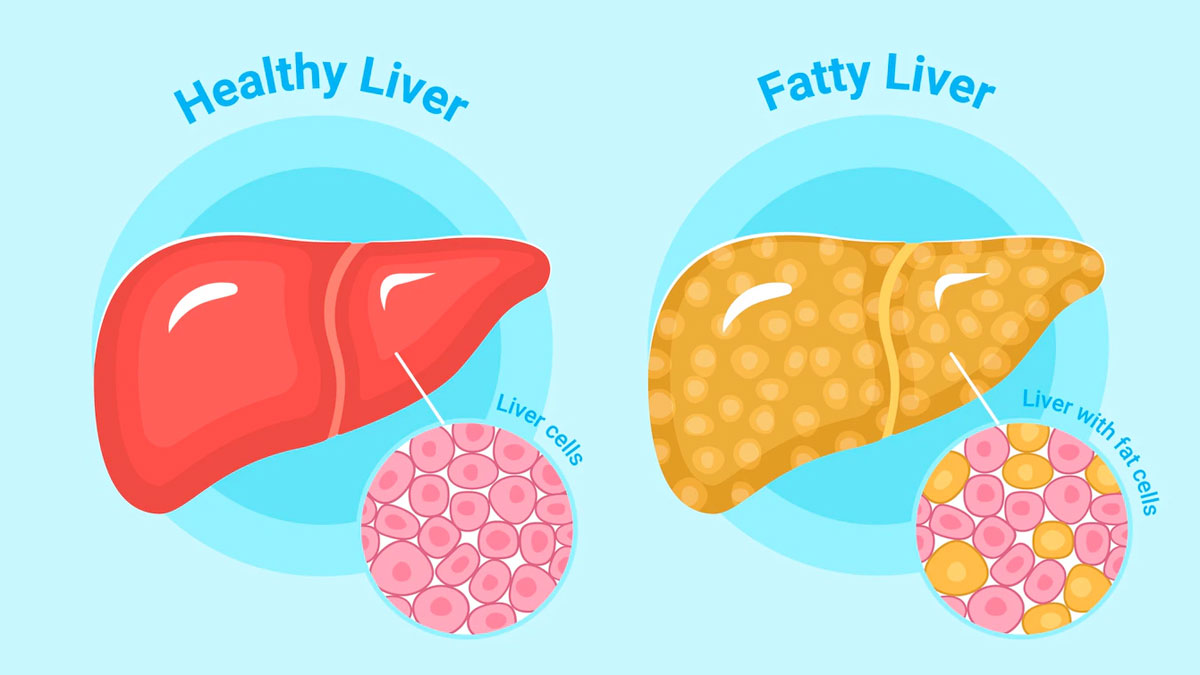
When we hear about sudden weight gain, the first things that come to our mind are overeating, hormonal imbalances, or less exercise. But a Harvard medical specialist says that one frequently underestimated reason may be fatty liver disease.
Table of Content:-
Fatty liver, also referred to as hepatic steatosis in medical terms, happens when fat accumulates in the liver in excess. Although some fat in the liver is natural, an excessive amount can disrupt its essential functions, to detoxify the body, control metabolism, and metabolise nutrients. When left unchecked, it can lead to inflammation, fibrosis, or even cirrhosis.
Link Between Unexplained Weight Gain and Fatty Liver
A Harvard doctor says that rapid, inexplicable weight gain, particularly in the abdominal area, may be an early indicator of fatty liver. That weight gain is not merely fat storage in the skin but fat buildup within the liver itself, which interferes with its effectiveness.
The troubling thing about fatty liver is that it is a silent disease. During its initial stages, most individuals don't feel conspicuous symptoms, and thus changes in weight or energy levels may be the initial warnings.
Also read: How To Prevent Fatty Liver In Young Professionals

Symptoms to Be Careful About
Although most individuals with fatty liver are symptomless, some warning signs can be watched out for. These include:
- Abrupt or unexplained weight gain, particularly belly fat
- Persistent tiredness or low energy
- Upper right abdominal pain or discomfort, mild
- Swollen legs or belly (in severe cases)
- Abnormal liver enzyme levels in blood tests
If you experience these, it is best to seek the advice of a healthcare professional for screening.
Who Is at Risk of Fatty Liver?
Some factors put you at risk for fatty liver include:
- Being overweight or obesity
- Type 2 diabetes or insulin resistance
- High triglycerides or high cholesterol
- Physical inactivity
- Heavy drinking
- Diet with high amounts of processed foods and sugar

Tips to Prevent and Manage Fatty Liver
The good news is that fatty liver is often reversible with lifestyle changes. Here’s what experts recommend:
- Maintain a Healthy Weight: Aim for gradual, sustainable weight loss if overweight. Even a 5–10% reduction can significantly reduce liver fat.
- Eat a Balanced Diet: Focus on whole foods, fiber-rich vegetables, lean proteins, and healthy fats. Cut down on sugary drinks, refined carbs, and fried foods.
- Exercise Daily: A minimum of 150 minutes of moderate-intensity physical activity each week may decrease liver fat and enhance metabolism.
- Cut Down on Alcohol: Heavy drinking can exacerbate liver harm. Moderation or avoidance is the way to go.
- Undergo Regular Checkups: Periodic blood tests and imaging scans may catch fatty liver in its early stages.
- Treat Underlying Conditions: Manage diabetes, blood pressure, and cholesterol through lifestyle modifications and, if necessary, medication.
Bottomline
Sudden weight gain is not necessarily a matter of overindulgence and laziness, it might be your body telling you something more important, such as fatty liver. With vigilance, early screening, and good lifestyle habits, you can safeguard your liver and overall health.
Also watch this video
How we keep this article up to date:
We work with experts and keep a close eye on the latest in health and wellness. Whenever there is a new research or helpful information, we update our articles with accurate and useful advice.
Current Version
Sep 13, 2025 10:55 IST
Published By : Tanya Srivastava